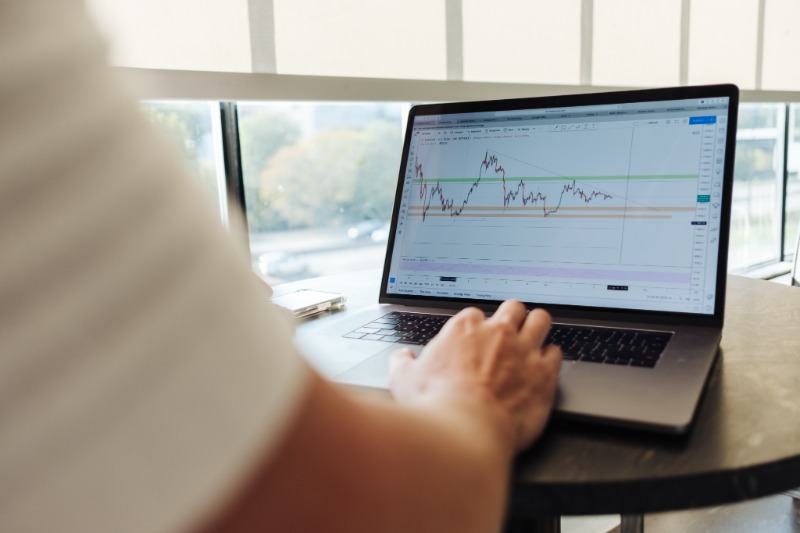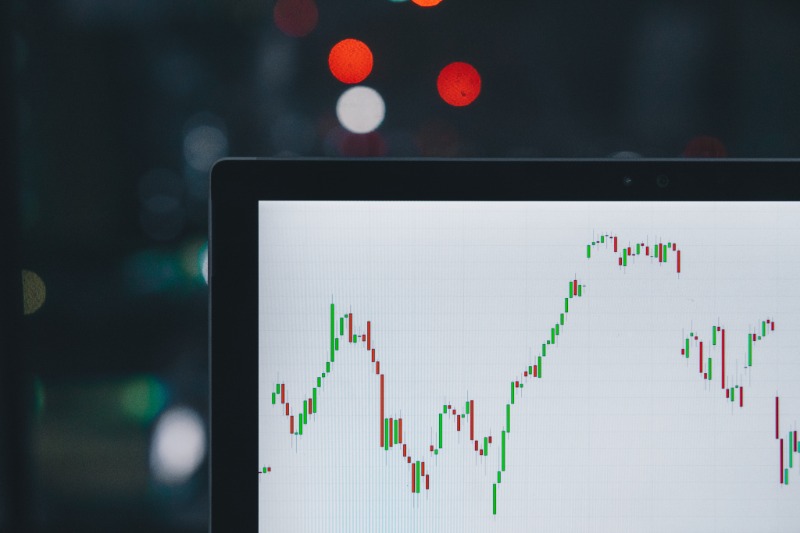Buy Bitcoin in an ETF? Not so fast.

On Tuesday, October 19, 2021, a new exchange-traded fund (ETF) called the Proshares Bitcoin Strategy ETF (BITO) began trading. This fund, the first to be listed in the U.S. for Bitcoin, was snapped up by many eager buyers. According to Bloomberg, during the first hour of trading, investors purchased $500 million of BITO, making it the most successful ETF launch of 2021 and the seventh-most-successful launch of all time.
Why are investors so hungry for this the BITO ETF?
Bitcoin has been notoriously tricky for retail investors (you know, normal people) to buy since you have to figure out wallets, exchanges, and how to maneuver in the foreign land of cryptocurrencies in order to purchase it. Most investors have been waiting eagerly for Bitcoin to become as easy to buy as a stock like Apple or Tesla.
Up until now, one of the only ways you could be exposed to Bitcoin in your stock brokerage account was to purchase shares of the Grayscale Bitcoin Trust (GBTC), a trust fund established in 2013 that currently holds $38 billion worth of Bitcoin (3.4% of the Bitcoin supply). Unfortunately for retail investors, GBTC charges a hefty 2.0% management fee, causing investments in the fund to seriously underperform any direct investments in Bitcoin itself. (read this review of Dan Holling’s The Plan for one investor’s personal experience with GBTC which netted a 368% return versus Bitcoin’s return of 588% over the same time period.)
In fact, Grayscale Bitcoin Trust has announced that it has filed with the Securities and Exchange Commission to formally convert into an ETF, now that BITO has debuted, which would make it the first ETF to be pegged directly to Bitcoin.

Wait, I thought BITO was the first Bitcoin ETF?
Not so fast. The Proshares Bitcoin Strategy ETF is actually an investment product based on the futures contracts of Bitcoin. ETFs based on futures contracts are notoriously vulnerable to divergences in the prices of the futures and the underlying assets that they track. Why is this?
Futures are contracts based on stock market indices or individual stocks that are exchanged between two parties which promise that one party will buy something at a predetermined price from the other party on a certain delivery date in the future.
Futures started as a way for commodity producers to insure the price of their products. For instance, say corn is currently selling at $5/bushel. If a corn grower is worried that the price of corn will go down to $3/bushel by the time her corn is ready for harvest, she could purchase a contract where someone else would promise to pay her $5 a bushel on harvest day in the future. This contract will cost her a little money, but she will make more per bushel if the price of corn drops because she will still be able to sell her corn for $5/bushel. However, if the price of corn rises to $6/bushel, she won’t need the contract because she can sell the corn at a higher price without the contract. In that case she’ll be out a little bit of money, but the risk was hopefully worth it.
Airlines are also famous for trading futures of oil: they want to make sure they purchase fuel for their planes at the cheapest prices, so sometimes they will buy or sell oil futures to offset if the price of gas is rising or falling.

The Trouble With Futures
The trouble with futures is twofold in that futures contracts are always expiring and needing to be rolled forward as well as the fact that the picture for the commodity in the future is usually rosier than at the present. This means that futures contracts that are further out are usually priced higher than contracts that are expiring this month. ETFs that trade in futures are constantly needing to roll the current month contract, which is priced at an accurate price for today, into the future month’s contract, which is almost always priced higher. This is a losing strategy for most investors, especially those who hold a futures contract long-term, with most futures ETF’s falling by at least 90% when compared to the actual commodity it was supposed to track.
So if you’re interested in trading in Bitcoin, skip the BITO with its futures contracts and the GBTC with its high management fees. You’ll be much better off purchasing Bitcoin directly, especially if it continues to appreciate in value as it has in the past.
If you’d like to learn more about how to start out with cryptocurrency investing, check out our other articles on getting started such as:
Investing in Cryptocurrencies? Use These 6 Basic Tools
Choosing an Exchange and Opening an Account at Gemini
Also be sure to check out our free book: Crypto Secrets for Passive Income
